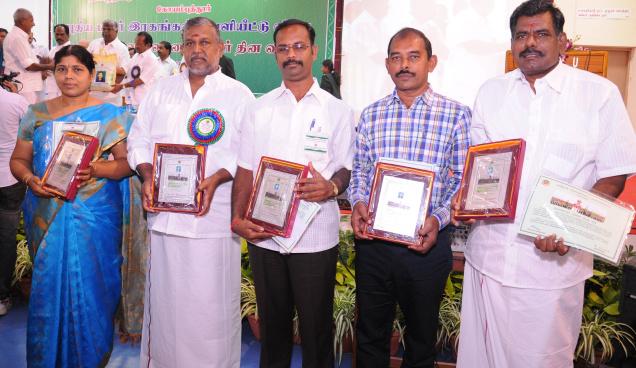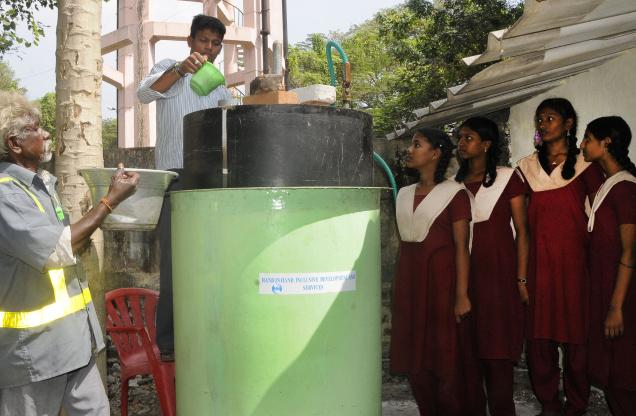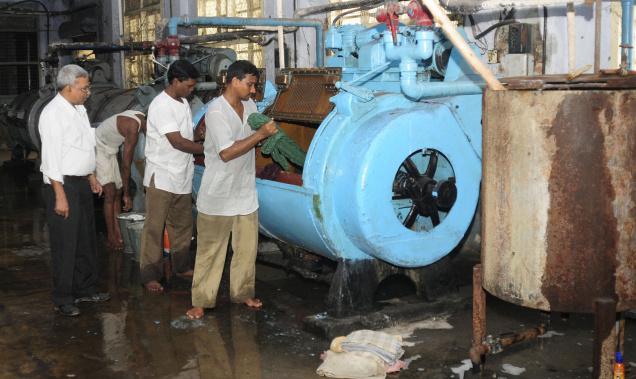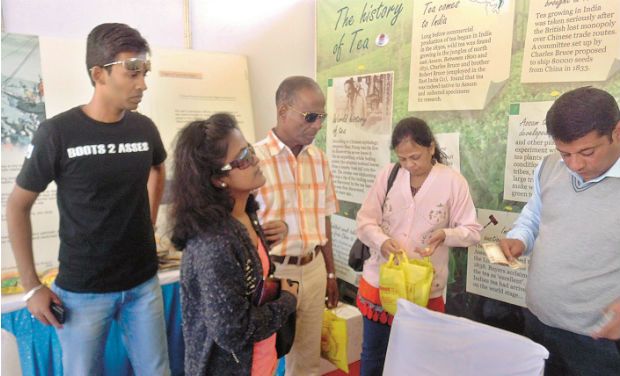
As it does every year, this time too the Tamil Nadu Agricultural University gave away awards to five select farmers from different parts of the State in recognition of their innovation and progressive methods followed in agriculture.
Instituted by the university, the Velanmai Chemmal Awards are sponsored by C.R.I. Pumps.
This year’s achievers included G. Mayilsamy from Sulur Kaliapuram, Coimbatore, for his contribution to seed and bio-fertilizer production by adopting new technologies, and also for making many other farmers follow them to turn them into progressive farmers.
G. Karikalan from Keelapatti, Karur district, for adoption of latest technologies in ensuring sustainable agriculture received an award too. He has also established a co-operative production company, which is operating successfully.
T. Rajkumar from Devankudi, Tiruvarur district, was recognised for his contribution to sustainable agriculture and service to farming community. He is involved in extensive use of mechanisation, from sowing to harvest of rice. He has also associated himself and other farmers with animal husbandry, to generate additional income.
A.P. Karuppiah, a banana farmer from Sinnamanur, Theni district, received award for his contribution and service to farming community. He has been instrumental in motivating farmers to form associations and take up processing technologies in making banana products
R. Suganthi from Neyveli in Cuddalore district, was recognised for her contribution to rural women’s development and service to farming community. She has been associated with making and marketing processed food products. She is also involved in spreading the food processing technologies of the university among women Self Help Groups.
According to Vice-Chancellor K. Ramasamy, the selection procedure is very stringent. “Applications for the award are distributed by the Krishi Vigyan Kendras (KVKs). The KVKs shortlist and submit a list of five names. These names are assessed by a five-member committee based on 10 criteria. The criterion is not only to do with their achievements, but also how much they can disseminate the knowledge that made them achieve great heights,” he said.
The final five were selected from the shortlisted 12. The winners of the award will visit all the colleges and campuses of the university to share their experiences with students.
source: http://www.thehindu.com / The Hindu / Home> News> Cities> Coimbatore / by Staff Reporter / Coimbatore – January 19th, 2014




